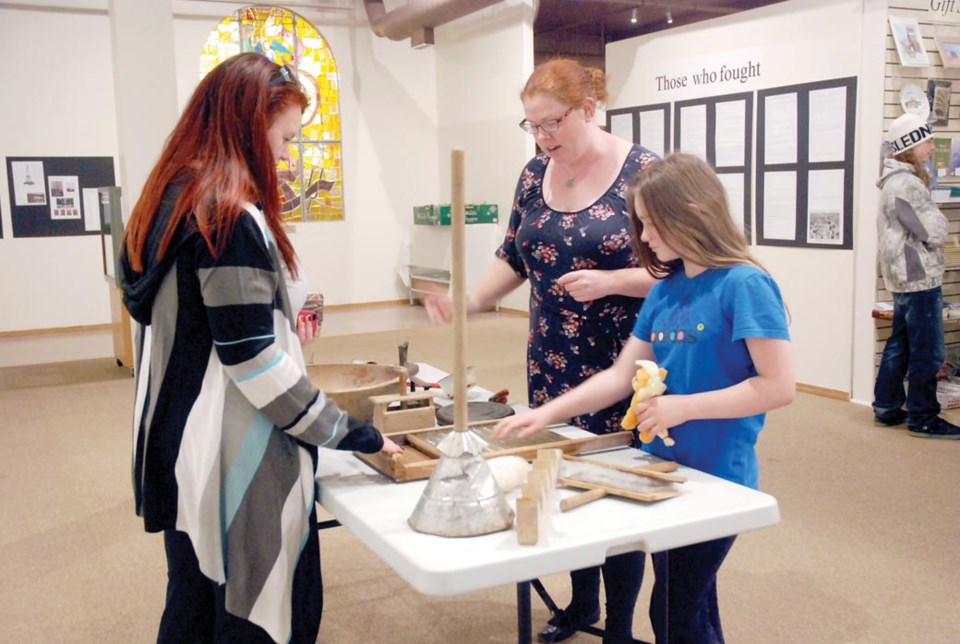On Oct. 25, the Humboldt & District Museum gave residents the opportunity to do something normally never allowed: touch the artifacts.
A special selection of items that were considered capable of some rough handling were brought out for the day. They included items such as a higher end washboard (made of wood and glass), a waffle iron, and an early 3D stereoscope.
"The idea was to let people experience the museum in a slightly different way and let them do something they're not usually allowed to do," said Jean Price, the museum's program coordinator.
Normally, touching of items in the museum is never allowed simply due to their fragility. According to Price, the items on display are kept under strict conditions. They aren't exposed to sunlight (hence the lack of windows), the bulbs they use don't have UV light, and even the temperature and humidity in the building is controlled. The items are limited in how much they're moved, touched (even by museum employees), and exposed to light.
"The oils in our fingers can be very damaging, so the ones we have out today were chosen specially because they can withstand being handled, whereas some can't," said Price.
Some of the more fragile items include anything that's paper, textiles, or conserved metals. According to Price, anything that's been conserved is usually more fragile and any handling would "destroy it." The oils in fingertips speed up the reactions that cause decay. Conservation would halt some of those processes, but leaves it more vulnerable should they be touched thoughtlessly afterwards.
Thus, having an opportunity to touch the items at the museum is a rare opportunity that a few people seemed to recognize. The museum saw a few more visitors than usual, ranging from young to old.
One of the more popular items that people liked to experience was the 3D stereoscope. It placed two identical images side by side and attached a hand span away from the lens via a holder.
"Sometimes, people like to tell each other what things are, which is kind of cool," said Price. "Kids telling their parents or grandparents what they learned (about the item) in school."




